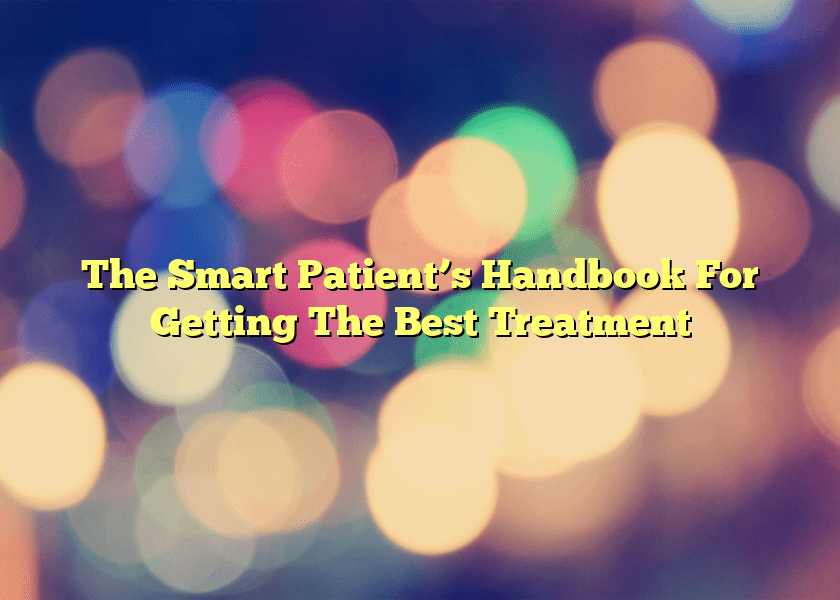The Smart Patient’s Handbook For Getting The Best Treatment
Take it from those in the know-two of America’s best-known doctors and the Joint Commission, watchdog for quality and safety of health care in America-there are steps you can take to make sure you get the very best medical treatment possible.
Dr. Michael F. Roizen is a practicing anesthesiologist at the Cleveland Clinic and founder of RealAge.com. Dr. Mehmet C. Oz is a practicing cardiothoracic surgeon at New York Presbyterian/Columbia Medical Center.
Together, these doctors have joined with Joint Commission Resources to create “You: The Smart Patient: An Insider’s Handbook for Getting the Best Treatment,” a new book that shows how every patient can take charge of his or her own health care and get the best treatment available.
The book gives readers clear, definitive information on such topics as creating a health profile, choosing the right doctors and hospitals, avoiding medication errors, preventing infections, understanding prescription drugs, working with doctors to safely use alternative treatments, and helping a loved one by being his or her health care advocate.
Here are a few useful tips from the book:
• Stick to the facts. Patients often give doctors too little pertinent information and many distracting off-topic details. The first sign of a smart patient is a health profile. To create a health profile, find the sample form in the book labeled “Your Health Journal” or fill one out online at www.jcrinc.com and www.RealAge.com.
• Have a tattle plan. Bring your spouse to the doctor’s appointment. There are questions he or she may be able to answer that you can’t.
• Find Dr. Right. One of the most important decisions you will ever make is choosing your doctor. To find a great doctor, ask the ER nurse-manager at the best local hospital. A nurse in the intensive care unit is also a good choice. These registered nurses get a battlefield view of doctors at their best and worst.
• Go board-certified. The American Board of Medical Specialties recognizes 24 areas of medical specialty including anesthesiology, cardiology, internal medicine and pediatrics. You can search for board-certified physicians at www.abms.org or call (866) 275-2267.
• Case your hospital. To find the best hospital for you-whether it’s a small community hospital, a hospital in your rural area or a large teaching hospital-go for an accredited hospital listed on the Joint Commission’s Web site at www.jointcommission.org. Joint Commission accreditation is the Gold Seal of Approval for a hospital-and that’s what you want. The Joint Commission also evaluates ambulatory clinics, home health agencies, home medical equipment companies, nursing homes, laboratories and behavioral health care facilities.
• Know your hospital’s numbers. Research has shown that for several common operations, hospitals that perform a specific number or more of that operation every year have better success rates. Your surgeon should be able to give you this info, as should the hospital’s information line.
• Make a new “phriend.” Your pharmacist is the least expensive and most accessible health resource you have. Smart patients develop a personal relationship with a pharmacist, which makes it easier to ask questions.
• Insist on being scanned. In the hospital, have staff check your hospital ID bracelet before they give you any medication, take blood or wheel you off for a test. If your hospital uses a bar-code scanner on ID bracelets, insist they scan you every time.
• Do you know how fast your ER treats heart cases? What is their average time for getting heart attack patients into surgery? Hospitals are required to document their times.
